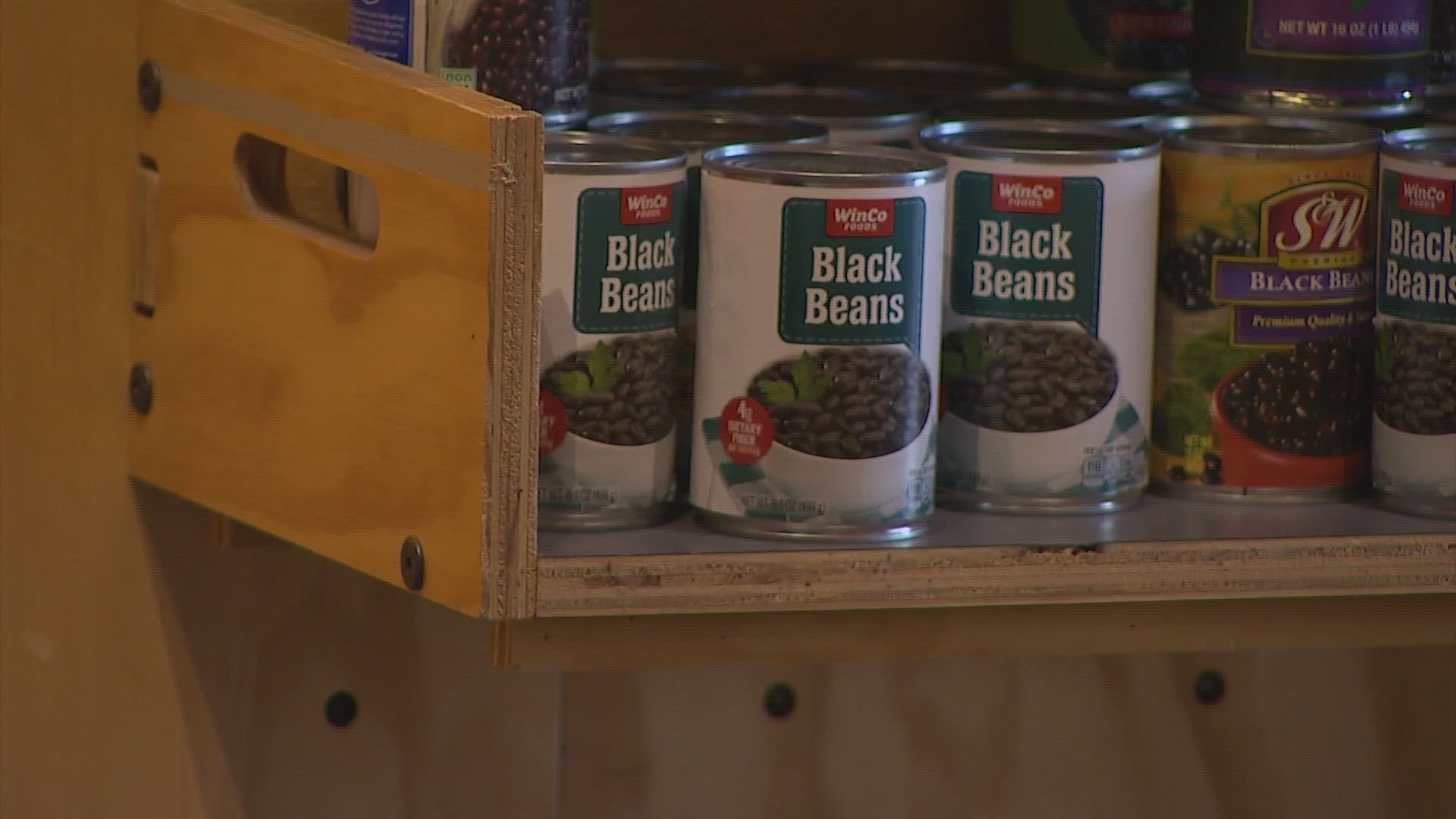SEATTLE — As KING 5 reported, Washington food distribution leaders previously predicted a “hunger cliff": a high demand for food and basic essentials after half a million Washington households lost their federal food assistance March 1.
After federal SNAP funds, one visitor to Northwest Harvest's Community Market said Monday that the grocery shelves are not what they used to be.
“It’s almost empty," the man told KING 5. "There’s a lot of people coming in now.”
There's a long list of reasons for that, according to Northwest Harvest leaders.
Firstly, pandemic-era SNAP benefits ended last month.
"Community resources are gonna be what people turn to when they see that cut in their SNAP benefits," said Christina Wong, Northwest Harvest's Director of Public Policy and Advocacy.
This is exacerbated by food prices inflating by 10% overall since just a year ago.
"Food is expensive, diapers," said the man visiting the market Monday. "Everything expensive."
Plus, as Wong points out, food banks already became strained in recent months: they have 80% fewer food items on shelves now compared to this time last year. In other words, there are only two food items for every 10 items they had on shelves last year. Wong said delivery delays and the inflated cost of food are affecting distribution centers like hers, too.
"Also, disruptions to donated food," Wong said. "People are just trying to get by, trying to make ends meet for themselves and their families."
Wong and her colleagues at Northwest Harvest work to supply food to more than 400 food pantries across Washington.
“We actually see the end of February to be something like a hunger cliff," Northwest Harvest CEO Thomas Reynolds told KING 5 in February/
So are they seeing the impacts of that yet?
"We haven’t seen too much in terms of longer lines just yet," Wong said. "Starting at the end of this month or next month, I think we can expect to see even longer lines than what we’ve been experiencing already.”
Meanwhile, state Senate lawmakers got privy to the crisis food bank leaders are forecasting on Monday.
"I’ll be forced to cut my general expenses just to eat enough to survive and not starve," said Brian Clark, a disabled Washingtonian who publicly testified Monday. Clark said he previously sustained injuries that forced him to receive disability income and SNAP benefits, formerly known as food stamps, due to not being able to work anymore.
Wong said she predicts that disabled individuals, like Clark, and low-income seniors are likely to see the most drastic drop in their monthly benefits this March.
"I was receiving approximately $250 per month," Clark said. "Now that the emergency allotments has ended, I will be receiving approximately $90 per month.”
Bill 1784 would devote $28 million to state agencies that help fund food programs so they can continue feeding the people of Washington.
The proposed legislation passed the House with zero opposition and will likely be voted on by senators this week after being heard publicly in committee Monday.

